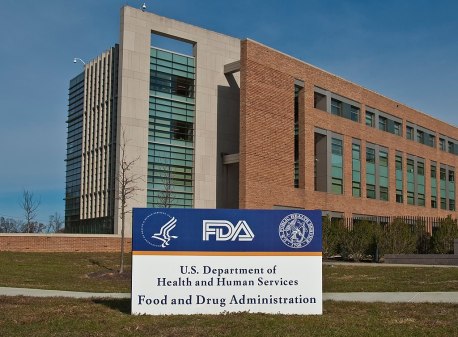FDA’s acting CIO envisions fully mobile investigators

One component of mobility is making sure data is available. Walter Harris, FDA’s COO and acting CIO, wants to ensure data structures and technical infrastructure allow those working in the field to pull important data. (FDA)
Walter Harris, the Food and Drug Administration’s chief operating officer and acting chief information officer, wants the agency’s investigators to be more mobile.
He sees a future where an investigator can take notes and pictures on site and send everything digitally to a central repository for processing. It would cut weeks or more off the time needed to conduct inspections, much of which is now done manually, Harris said.
But to make that happen, he said, FDA needs all its product centers — offices that oversee a range of products, from medical devices to tobacco goods — to share a common platform where inspectors can enter and extract information from FDA systems, which currently holds 3 petabytes worth of data.
“FDA is tasked with approving leading-edge drugs, biological devices and medical devices,” he told FedScoop. “Supporting systems that make that happen should be just as updated.”
Harris outlined FDA’s plans for mobility, its challenges and the agency’s Innovation Center in an interview with FedScoop earlier this month.
(Editor’s note: Interview edited for clarity and length.)
FedScoop: What mobility projects are you particularly excited about?
Walter Harris: There are a couple.
We use BlackBerry for most of our administrative activity at FDA. Given how busy and large the agency is becoming, we now know that we have to expand [our mobile platforms]. Mobility is the ability of our staff to work anywhere using data any time on any device, and we think we need to update our infrastructure to support that type of activity.
We’re looking at a host of platforms. You may have heard of Zim mobile, which is currently being used as a BlackBerry platform for us. We want to be able to test non-BlackBerry devices within the same environment, allowing us to have a range of different devices to do different things with.
We do have a need for support technology for those who work out in the field to do inspections.
While we may not get into the scientific parts of mobility strategy, we do have a need for support technology for those who work out in the field to do inspections, for example, to transfer data test frames and data sets back and forth remotely.
Given that FDA is receiving tremendous pressure from industry to move faster, if we had the ability to have an inspector go out in a cornfield, for example, with just a single device and the various tools right in his hand, it shaves off not days but weeks and months of time to have him do inspections.
FS: What steps are you taking to advance mobility?
WH: Right now, we’re looking at quite a few solutions out here — like the feasibility of bringing your own devices to determine if it can generate savings and if we have the appropriate security for it. And what’s more important is we want to make sure the industry programs that we support are also on board with BYOD.
Another example is openFDA. Individuals can come into a single portal, which is openFDA, extract data out and create apps to manipulate the data. [Editor’s Note: Read more about openFDA here.]
We have to have an infrastructure to support some of these creative and innovative packages coming in from industry.
FS: What is the biggest obstacle to get mobility to your investigators in the field?
WH: Changing the culture of the way we currently do business [and] informing the industry so that they know that we’re trying to create tools that will assist them in getting items to the market faster — if we remove those two barriers, which are huge, that would be a great way to move things forward.
FS: Any other challenges FDA is facing with regard to mobility?
WH: In addition to those two areas, we’ve got security, which is always front and center at the FDA. We are tasked with protecting trade secret information. So, security is our No. 1 issue at FDA — to ensure that whatever we create, we take that into consideration up front versus on the back end.
FS: Why is mobility important for you to pursue?
WH: Packages for applications for a technology, drug or device are upwards of a terabyte of data. That’s lots of data coming in. We have to have an infrastructure to support some of these creative and innovative packages coming in from industry. And the only way to do that is to have an infrastructure that can support such large data sets and [that can pull data that’s needed to complete field work].
FS: What are some new frontiers in IT for FDA?
WH: I’m very excited about the Innovation Center we’ve created at FDA. It allows us to test mobility before investing to make sure that what we’re looking at when we’re designing it for customers and industry partners — is the right thing and the right tool for us to use. The outcome is a much more effective FDA.
Read more of FedScoop’s special report, “Focus on Mobility 2015.”






